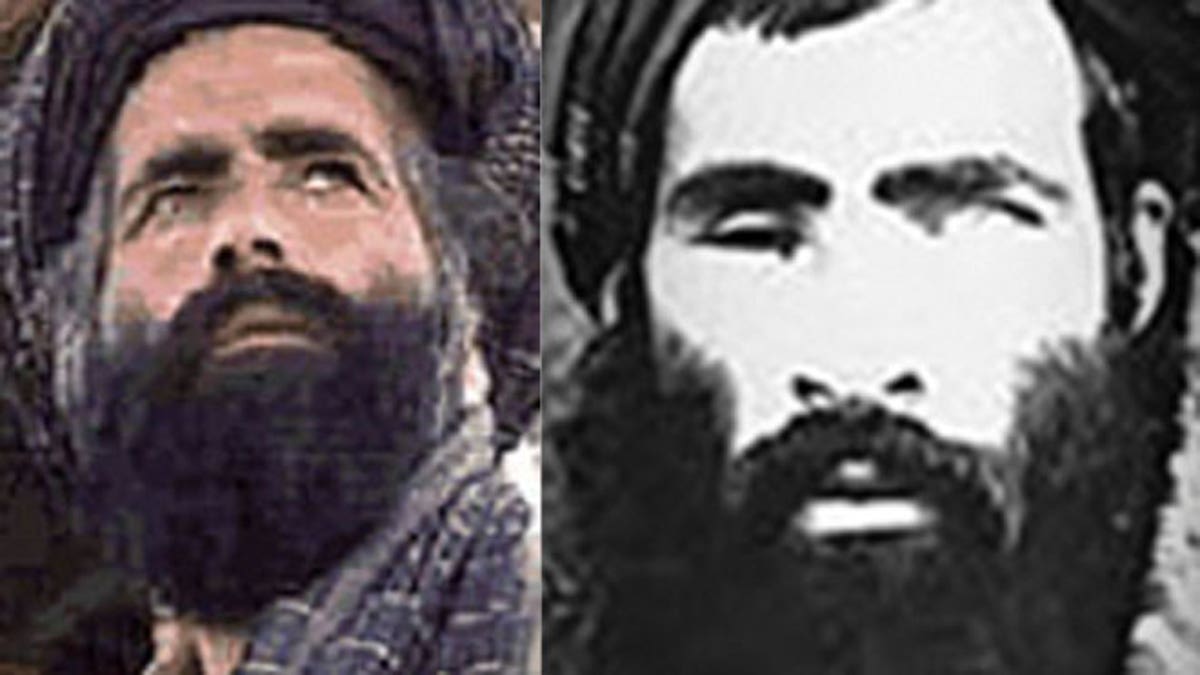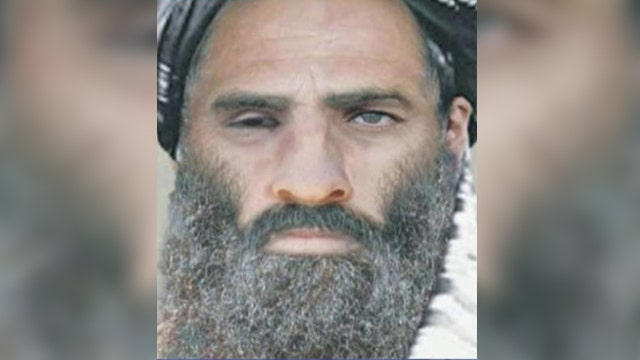Report: Afghan Taliban leader Mullah Omar died two years ago
Afghan government investigating reports that the Taliban leader has been dead for two years
DEVELOPING: Afghan's main intelligence agency has confirmed that Mullah Mohammed Omar, the mysterious one-eyed leader of the Taliban who has had a $10 million price on his head since 9/11, is dead, a development that could signal a power struggle within the group.
Abdul Hassib Seddiqi, the spokesman for Afghanistan's National Directorate of Security, said Wednesday that Mullah Omar died in a hospital in the Pakistani city of Karachi in April 2013.
"We confirm officially that he is dead," he told The Associated Press.
The White House said the reports of Omar’s death “are credible,” and a senior U.S. official told Fox News that Omar has been dead since April 2013, likely due to a liver or kidney issue.
The Office of President Ashraf Ghani also released a statement confirming Omar's death.
"The government of the Islamic Republic of Afghanistan, based on credible information, confirms that Mullah Mohammad Omar, leader of the Taliban died in April 2013 in Pakistan," the statement said. "The government of Afghanistan believes that grounds for the Afghan peace talks are more paved now than before, and thus calls on all armed opposition groups to seize the opportunity and join the peace process."
Afghan government sources told the BBC early Wednesday morning that Omar, who went into hiding after U.S. forces drove the Taliban from Kabul for harboring Al Qaeda leader Usama bin Laden while his forces plotted and executed the attacks on the World Trade Center, may have been been dead for as long as three years. Rumors of his death have surfaced previously, but this is the first time they have been addressed by top government sources.
"We confirm officially that he is dead"
There was no immediate comment from Washington, where a long-standing reward of $10 million had been offered by the State Department for information leading to Omar's capture.
Earlier, Taliban spokesman Qari Yousef Ahmadi rebuffed Wednesday's reports of Omar's death, according to Sky News.
"According to my information Mullah Omar is still alive and leading the movement," Ahmadi said.

An Afghan official says his government is examining claims that reclusive Taliban leader Mullah Omar is dead. (FBI via AP)
The cause of Omar's death was not known. A report in the Express Tribune newspaper of Karachi, Pakistan, quoted a member of the Taliban's central leadership council who said Omar had died of tuberculosis in early 2013 and had been buried somewhere in Afghanistan. The paper, citing Taliban sources, reported that a new leader of the Islamist group would be elected before July 31.
Nasir Shansab, a former Afghan industrialist who has advised many groups in the region, said Wednesday's report of Omar's demise "certainly" seemed more credible than past rumors. Shansab said, however, that Omar's fate was largely irrelevant.
"Whether Mullah Omar lives or died years ago is in my view fairly marginal," he said. "Whatever the Taliban does is really Pakistan. Pakistan makes the decisions and Pakistan is in total control of what the Taliban do."
The reclusive Omar, of whom only a few photos are known to exist, has not been seen publicly since his fall from power in 2001, leading to several reports of his demise.
Earlier this month, a message purporting to be from Omar was released backing peace talks with the Kabul government. The statement said the talks were necessary to "bring an end to the [foreign] occupation and to establish an independent Islamic system in [Afghanistan]." However, that message was in the form of a text statement published on a Taliban website rather than an audio or video recording, fueling rumors that Omar was dead or otherwise incapacitated.
In recent years, the Taliban had become increasingly divided among rival factions, with some insurgents opting to pledge their allegiance to ISIS. However, Omar still enjoyed the loyalty of many local figures.
The Taliban's succession process could become complicated.
Mullah Abdul Ghani Baradar, a top Omar deputy, was reportedly next in line to head the Taliban. He was freed from a Pakistani prison in September 2013, though it’s unclear if he’s been able to rejoin the terror group’s leadership, according to the Express Tribune.
Mullah Akhtar Mohammad Mansoor was reportedly named a top deputy to Baradar in 2010, and Mansoor has since become the Afghan Taliban’s acting chief.
Mansoor is now reportedly vying for the Afghan Taliban top post, a rise opposed by Mullah Omar’s eldest son, Mullah Mohammad Yaqoub, who is also trying to become the group's leader, according to Pakistan’s The News.
Mansoor has had his Taliban reputation “widely damaged for spreading news of Mullah Omar’s death,” according to the Express Tribune.
In the wake of the departure of NATO combat forces at the end of last year, the Taliban have stepped up attacks on Afghan troops, which are now in charge of security in the country.
The Associated Press contributed to this report.









































